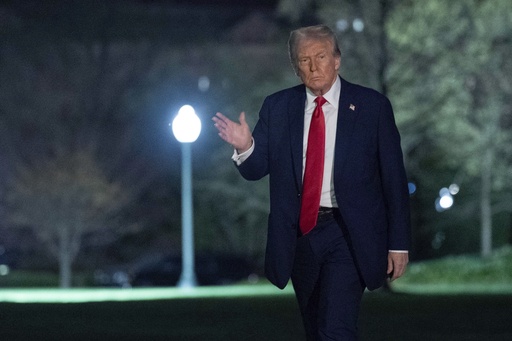WASHINGTON — Former President Donald Trump has granted a pardon to a Virginia man stemming from his involvement in the events of January 6, 2021, at the U.S. Capitol, after his sentence was previously commuted. The individual, Thomas Caldwell, a retired Navy intelligence officer, was tried alongside Stewart Rhodes, the founder of the Oath Keepers. Though Caldwell was acquitted of seditious conspiracy, the most serious accusation regarding the Capitol events, he faced convictions for other charges.
Caldwell’s pardon was dated March 20. His defense attorney, David Fischer, communicated the news to Caldwell on Monday, having learned of the pardon through news outlets. Fischer expressed that Caldwell is extremely pleased with the decision.
The legal proceedings had resulted in Caldwell being found guilty of obstructing Congress and for tampering with documents following the riot. However, one of those convictions was later overturned due to a U.S. Supreme Court ruling. U.S. District Judge Amit Mehta, on January 10, sentenced Caldwell to time already served and deemed no supervised release necessary, although prosecutors had recommended a four-year prison term.
Shortly after returning to the White House, Trump issued a broad clemency to over 1,500 individuals charged in connection with the Capitol riot. This included reduced sentences for several leaders and members of groups such as the Oath Keepers and Proud Boys.
In the trials, prosecutors argued that Caldwell had a role in coordinating “quick reaction force” teams, with an agenda purportedly to supply weapons to extremists if required. Despite this, the arms were not utilized, and Oath Keepers’ attorneys argued the weapons were purely intended for defense against potential threats from other activist factions.
During his trial, Caldwell testified, downplaying the severity of messages he had sent before January 6, which included suggestions of transporting “heavy weapons” across the Potomac River. Caldwell clarified that these were not serious plans, describing the communication as “creative writing.”
Fischer highlighted Caldwell’s pardon as significant, emphasizing the gravity of the outcome after an acquittal on most charges by a jury in a region known for progressive views, and sentencing by an Obama-appointed judge. Fischer remarked, “I think it’s safe to say the government got it wrong.”



